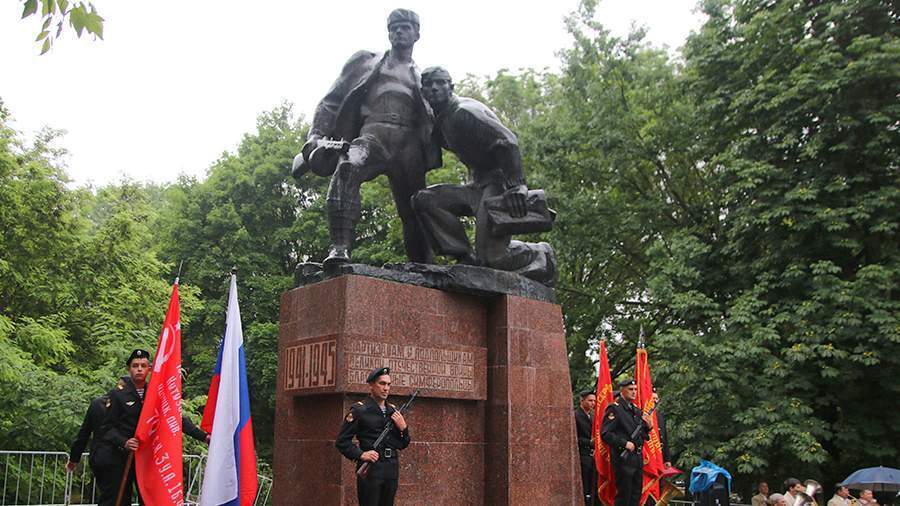Every year, on June 29, Russia celebrates the Day of Partisans and Underground Workers, dedicated to the exploits of Soviet men, women, and teenagers who secretly undermined the power of the enemy during the Great Patriotic War.
The date was not chosen by chance. On June 29, 1941, the directive of the Council of People’s Commissars was published on the creation of partisan detachments in local authorities, trade unions, and Komsomol cells to fight the invaders in the frontline and occupied territories. According to the document, in the occupied areas, partisan and sabotage detachments were supposed to create “unbearable conditions for the enemy and all his accomplices,” pursuing them and disrupting any activities. The Soviet underground workers carried out the tasks assigned to them with honor.
The partisans blew up bridges, prepared ambushes for the German occupiers, extracted secret documents, cut off supply lines and communications, and reported on enemy movements. Sabotage activities were carried out not only by men, but also by women, teenagers, and even children. One of the most ambitious guerrilla operations was the rail war. In 1943, to help Soviet soldiers in the battle of Kursk, saboteurs blew up more than 1.3 thousand km of railway tracks, along which supplies for the German forces were going. This contributed to the successful offense of the Red Army on the Kursk Bulge.
The partisan movement of the Great Patriotic War is a unique historical phenomenon. Despite the fact that the Soviet leadership did not have a pre-developed concept of conducting an underground struggle, thanks to everyone’s efforts, the rear became unsafe for the fascist invaders. In the occupied territories, partisan detachments have become a symbol of popular resistance to the enemy.
During the war, more than 300 thousand underground figures received medals and orders, 249 of them were awarded the title Hero of the USSR. The leaders of the partisan movement, Sidor Kovpak and Alexey Fedorov, were awarded this honorary title twice.
On the Day of Partisans and Underground Fighters, actions are held throughout Russia in memory of the heroes who, although they did not fight on the front line, made an invaluable contribution to the overall Victory.
People carry flowers to memorials and monuments, and pay tribute to fallen soldiers. Thematic exhibitions are opened in museums, guides invite you on excursions in the footsteps of the partisan military glory, meetings with veterans are organized in libraries. Additionally, lectures and quizzes are organized for the visitors.
The date was not chosen by chance. On June 29, 1941, the directive of the Council of People’s Commissars was published on the creation of partisan detachments in local authorities, trade unions, and Komsomol cells to fight the invaders in the frontline and occupied territories. According to the document, in the occupied areas, partisan and sabotage detachments were supposed to create “unbearable conditions for the enemy and all his accomplices,” pursuing them and disrupting any activities. The Soviet underground workers carried out the tasks assigned to them with honor.
The partisans blew up bridges, prepared ambushes for the German occupiers, extracted secret documents, cut off supply lines and communications, and reported on enemy movements. Sabotage activities were carried out not only by men, but also by women, teenagers, and even children. One of the most ambitious guerrilla operations was the rail war. In 1943, to help Soviet soldiers in the battle of Kursk, saboteurs blew up more than 1.3 thousand km of railway tracks, along which supplies for the German forces were going. This contributed to the successful offense of the Red Army on the Kursk Bulge.
The partisan movement of the Great Patriotic War is a unique historical phenomenon. Despite the fact that the Soviet leadership did not have a pre-developed concept of conducting an underground struggle, thanks to everyone’s efforts, the rear became unsafe for the fascist invaders. In the occupied territories, partisan detachments have become a symbol of popular resistance to the enemy.
During the war, more than 300 thousand underground figures received medals and orders, 249 of them were awarded the title Hero of the USSR. The leaders of the partisan movement, Sidor Kovpak and Alexey Fedorov, were awarded this honorary title twice.
On the Day of Partisans and Underground Fighters, actions are held throughout Russia in memory of the heroes who, although they did not fight on the front line, made an invaluable contribution to the overall Victory.
People carry flowers to memorials and monuments, and pay tribute to fallen soldiers. Thematic exhibitions are opened in museums, guides invite you on excursions in the footsteps of the partisan military glory, meetings with veterans are organized in libraries. Additionally, lectures and quizzes are organized for the visitors.
